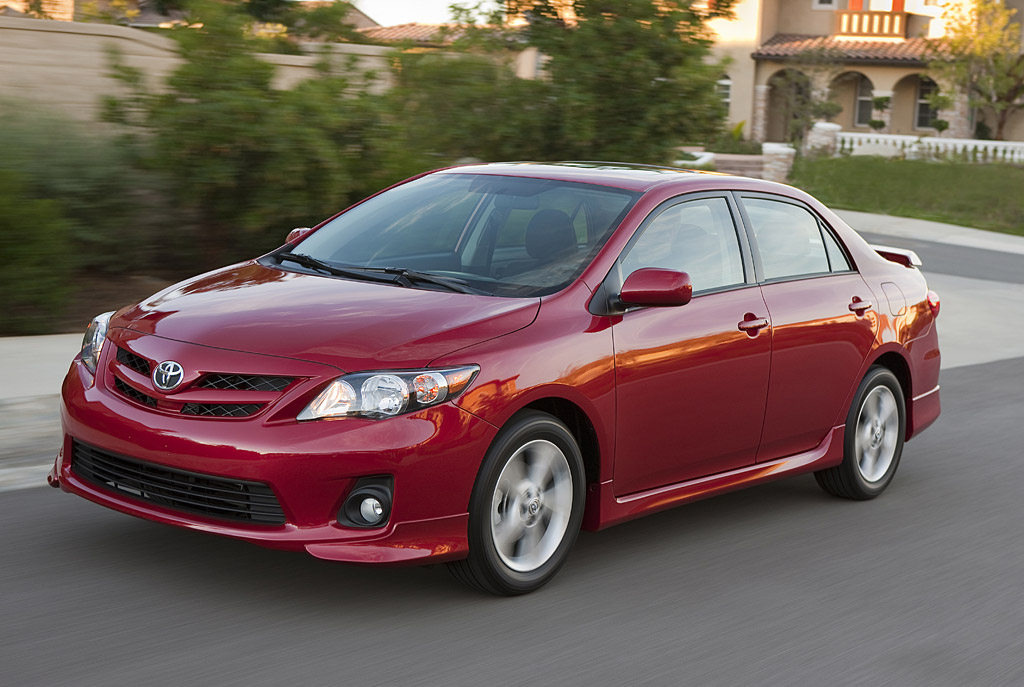Other cars may steal the headlines, but the Honda Civic and Toyota Corolla have spent plenty of time in the best-sellers lists.
That's because each offers a wide range of talents to a wide range of individuals and families. They may lack the excitement of other models, but if you want a safe, comfortable, cheap-to-run four-door sedan, one or the other is probably near the top of your shopping list.
With the Corolla rapidly ageing and the Honda relatively new to the market, which is most relevant to the cost-conscious buyer?
Read our reviews of the 2012 Honda Civic and 2012 Toyota Corolla
Gas mileage
There was a time when the Civic and Corolla were among the most economical cars on the market.
Indeed, it was Honda that really made the first move in the 1970s, launching its Civic into a market winded by the fuel crisis. With 30 mpg--and even 40 mpg, if driven carefully--it was comfortably two or three times more economical than many of the other popular cars of the day.
The Civic is still efficient now, though it's the hybrid version you really want if gas mileage and low emissions are a concern. For those who can't stretch to the 44 mpg, $24,050 hybrid (and don't want to buy used), a regular, 5-speed manual transmission Civic with a 1.8-liter gasoline engine can be had for $15,755, and it'll do 31 mpg combined.
Add a little more green from your wallet for the auto transmission and you get a little more green at the pumps, with 32 mpg combined and 39 highway.
Either way, the Civic out-punches the Corolla. With a manual transmission, the $16,130, 132-horsepower Corolla manages 30 mpg combined, and 34 highway.
You also spend extra to get less with the auto, which can only reach 29 mpg combined. Still, both automatic Civic and Corolla are rated at around 33 mpg by drivers entering real-world figures on the EPA's fueleconomy.gov website.
Side-by-side
In other respects, both cars are quite similar. Familiarity may have bred contempt with the Corolla's styling, and being very kind we could describe it as "inoffensive".
The Civic looks a little more sleek and modern, though again it's nothing particularly special to behold. It's a similar story on the inside, though here the Civic has more of an advantage, with its dual-level instruments and high-tech feel. Unfortunately, the plastics themselves err on the 99c-store kid's toy side of nasty, so it's better to look at than it is to touch.

2011 Toyota Corolla
Interior space is similar in each. The Civic offers 3 cubic feet extra space inside, at 95 cu. ft, and each has 12 cubic feet of trunk space.
Both should prove reliable too--these are cars renowned for going on and on, so they'll get you there even if they don't entertain on the way. When we reviewed the Corolla we described its handling as "somewhere between inoffensive and soggy". The Civic fares better, its handling described as "rewarding". Both manage to ride well, so neither will be uncomfortable on longer drives.
Conclusion
Choosing between Civic and Corolla is unlikely to be one of the most exciting decisions of your life, but both are worthy options in the compact class. Both have a talent for meeting the needs of buyers unconcerned by such niceties as style and image, while costing relatively little to buy and run.
You'll get greater gas mileage from each maker's hybrid cars--Honda offers the Civic Hybrid and Insight in that class, Toyota fields the slightly larger Prius--but with the reassurance of new-car warranties the low MSRPs of each car combined with 30 mpg-plus economy makes them good choices.
The Civic is more talented all-round, but you can be sure that Toyota will up the game another step with its next Corolla.
+++++++++++













